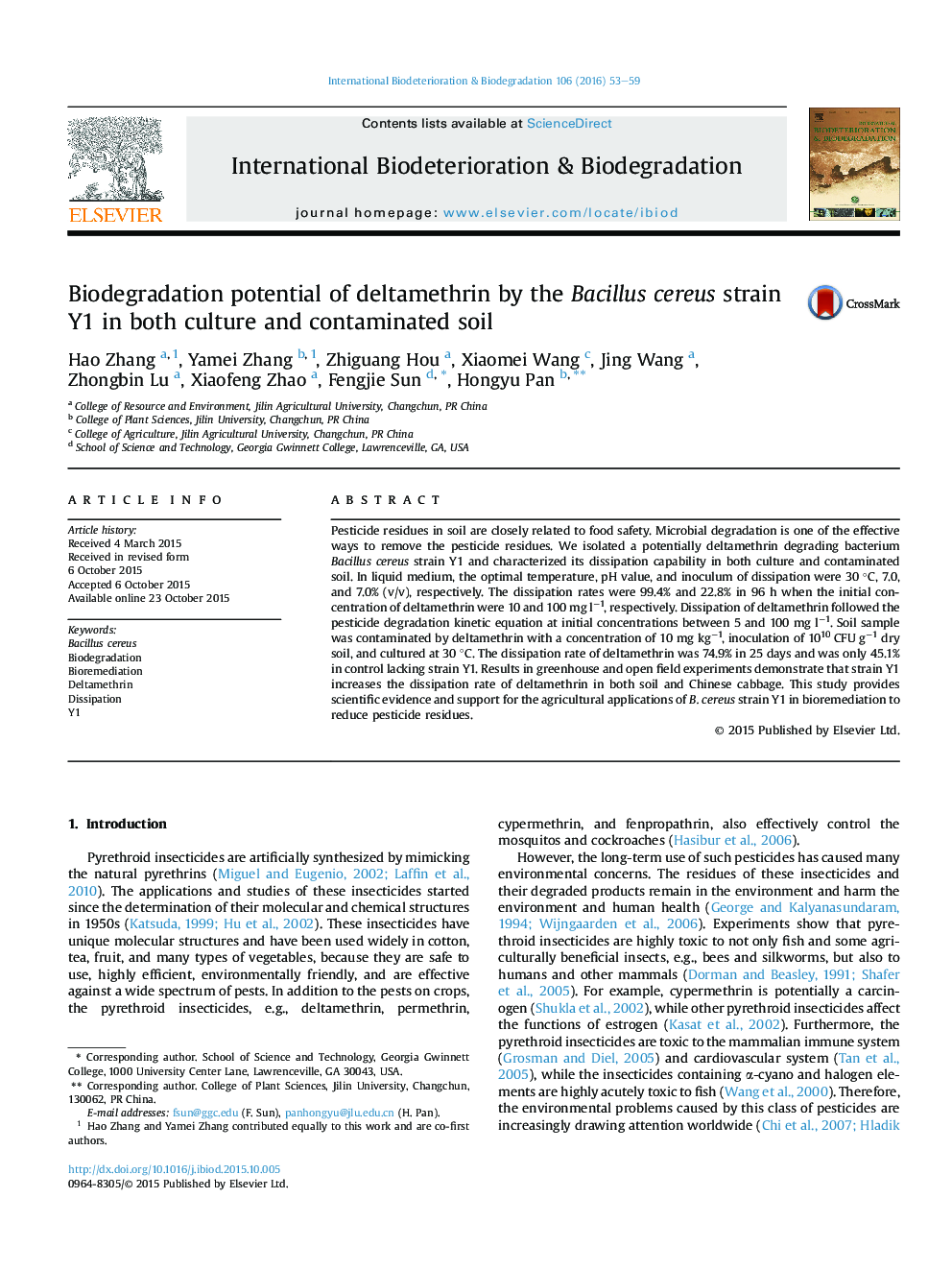| Article ID | Journal | Published Year | Pages | File Type |
|---|---|---|---|---|
| 4364285 | International Biodeterioration & Biodegradation | 2016 | 7 Pages |
•We isolate potentially deltamethrin degrading bacterium Bacillus cereus strain Y1.•We characterize the dissipation of deltamethrin by B. cereus strain Y1.•The optimal temperature and pH of dissipation is 30 °C and 7.0 in liquid medium.•Dissipation declines as the concentration of deltamethrin higher than 10 mg L−1.•Strain Y1 increases dissipation rate of deltamethrin in soil and Chinese cabbage.
Pesticide residues in soil are closely related to food safety. Microbial degradation is one of the effective ways to remove the pesticide residues. We isolated a potentially deltamethrin degrading bacterium Bacillus cereus strain Y1 and characterized its dissipation capability in both culture and contaminated soil. In liquid medium, the optimal temperature, pH value, and inoculum of dissipation were 30 °C, 7.0, and 7.0% (v/v), respectively. The dissipation rates were 99.4% and 22.8% in 96 h when the initial concentration of deltamethrin were 10 and 100 mg l−1, respectively. Dissipation of deltamethrin followed the pesticide degradation kinetic equation at initial concentrations between 5 and 100 mg l−1. Soil sample was contaminated by deltamethrin with a concentration of 10 mg kg−1, inoculation of 1010 CFU g−1 dry soil, and cultured at 30 °C. The dissipation rate of deltamethrin was 74.9% in 25 days and was only 45.1% in control lacking strain Y1. Results in greenhouse and open field experiments demonstrate that strain Y1 increases the dissipation rate of deltamethrin in both soil and Chinese cabbage. This study provides scientific evidence and support for the agricultural applications of B. cereus strain Y1 in bioremediation to reduce pesticide residues.
